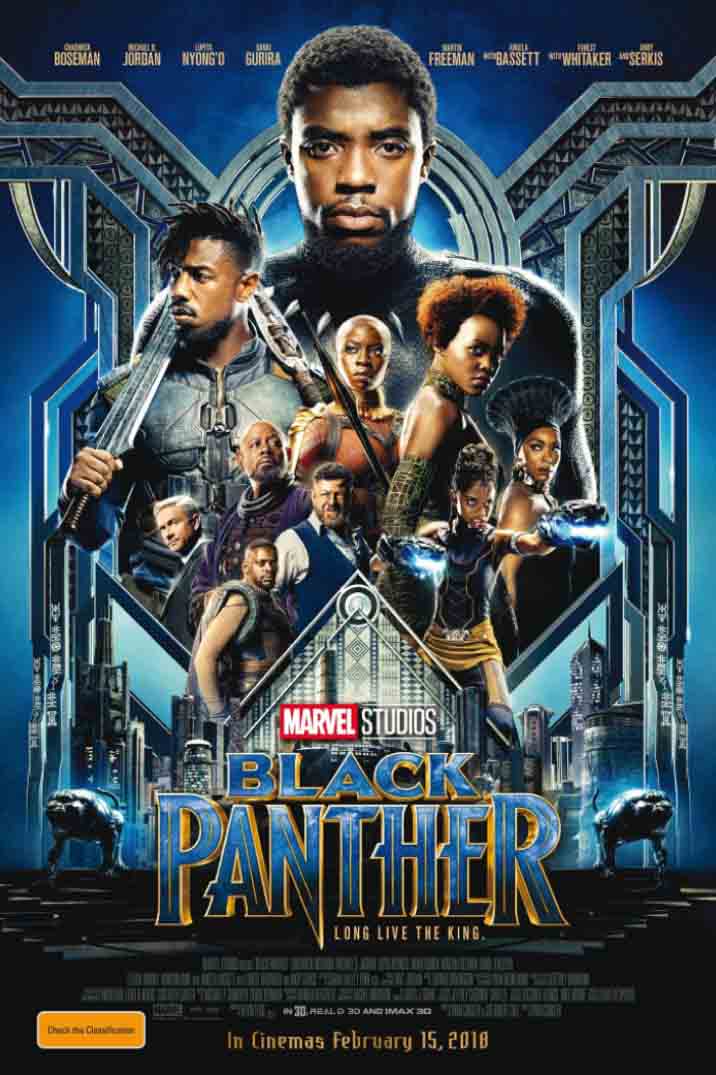
Wikimedia Commons
Like audiences across the world, Yalies are bubbling with anticipation for “Black Panther,” Marvel’s first big-screen venture starring a black male superhero in the leading role alongside a majority black cast.
The Afro-American Cultural Center has reserved a 177-seat theater at the New Haven Criterion for a screening of the film on Friday and offered tickets at a discounted price to undergraduates, graduate students, professional students and their guests. The screening — slated for Friday night — has sold out, with 20 people on the waitlist.
“The Black community at Yale is incredibly diverse with students representing much of the African diaspora,” said Chelsey Clark GRD ’18, manager of wellness initiatives at the Af-Am House, who organized the trip. “So, this film’s exploration of blackness both in America and in the fictional African country of Wakanda is extremely inclusive and resonates well with the diversity of experiences within our community.”
Set in the fictional African country of Wakanda, “Black Panther” takes place in a technologically advanced nation that poses as a developing country to the outside world. The film, based on a series of Marvel comics by the same name, follows the story of T’Challa, a man who returns to his nation to assume the throne after his father’s death, and must defend the country from an American villain named Killmonger.
Directed by Ryan Coogler and starring three Yale alumni — Lupita Nyong’o DRA ’12, Angela Bassett ’80 and Winston Duke DRA ’13 — “Black Panther” is already shattering records, claiming the title for the most IMAX ticket presales of any Marvel film. It currently boasts a 98 percent rating from critics on Rotten Tomatoes, and is the most-tweeted movie so far this year. Leading up to its domestic release on Friday, the movie has already earned $23.2 million in international box office sales.
In interviews with the News, Yale students expressed excitement about the impact that African representation in a major motion picture may have following the movie’s release.
“To be honest, it could have gotten a 20 percent rating or something,” Phyllis Mugadza ’21 said. “I still would have the hype for it. The fact that it just exists is just making me so excited. None of us probably thought this was ever gonna be a thing.”
Mariko Rooks ’21, who is attending the Af-Am House’s private screening, said the film’s depiction of “autonomous and independent and strong” black characters who exist in the context of a noncolonized society is “one of the most powerful things that could happen, ever.”
Rooks added that while she enjoys superhero movies as stress relievers, she considers this film something separate from Marvel that is “deeply impactful at a personal level.”
Kahlil Greene ’21, a Marvel comic book fan since childhood, said he is glad that the movie has a wide cast of black characters, rather than just a few characters who conform to prevalent stereotypes.
“There’s black villains, black superheroes, black women who are good, [and] black women who are bad,” Greene said. “It’s a plethora of characters. It’s almost an entirely black cast, so you get to see all different sides. There’s no stereotype that’s being enforced.”
Some students, however, expressed reservations about the way the film will shape audiences’ views of Africa and African culture.
Zainab Abiola Odunowo ’21 said she “feel[s] really weirdly about” the movie’s representation of Africa.
“People are making it seem like it represents everything that it means to be a part of the African diaspora, and part of what it is to be African,” Odunowo said. “The movie is a good part of representation and everything, but at the same time, it’s not really representing the truth that is Africa.”
Nevertheless, Odunowo “100 percent” intends to see the film, because she thinks it will be “a cool action movie.”
Faith Chumo ’21, vice president of the Yale African Students Association, said she is happy to see people taking notice of the film. She added that she hopes audiences will recognize that Africa is not a single entity, but rather composed of many nations and cultures. And, she said, she also hopes the movie will not encourage people to “fetishize” African culture.
The character of Black Panther made his first comic book appearance in July 1966.
Asha Prihar | asha.prihar@yale.edu







